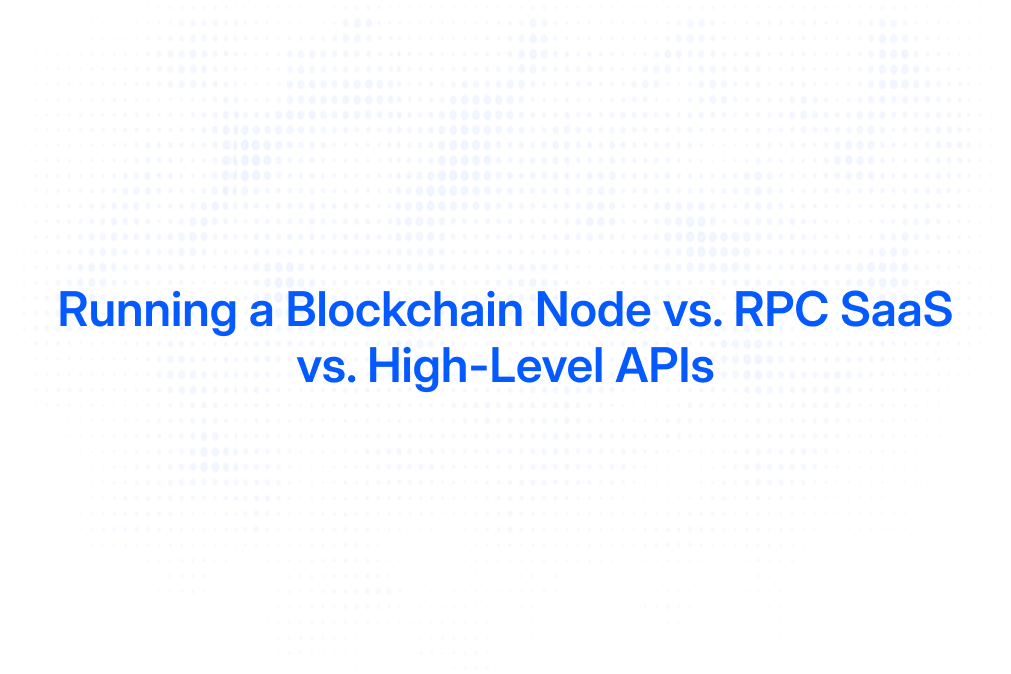RPC Auto-Routing for Gaming & GameFi Infrastructure
In the rapidly evolving world of blockchain gaming and GameFi, infrastructure reliability and performance are paramount. Remote Procedure Call (RPC) auto-routing has emerged as a critical technology to ensure seamless user experiences, reduce latency, and maintain uptime in decentralized applications (dApps). This article explores the significance of RPC auto-routing in gaming and GameFi infrastructure, highlighting its benefits, challenges, and best practices for developers and operators.
Understanding RPC Auto-Routing in Blockchain Gaming
RPC, or Remote Procedure Call, is the communication protocol that allows blockchain applications to interact with nodes and execute commands such as querying balances, sending transactions, or retrieving smart contract data. For gaming and GameFi projects, which often require real-time data and fast transaction processing, the choice and management of RPC endpoints can make or break the user experience.
RPC auto-routing refers to the intelligent distribution of RPC requests across multiple providers or endpoints automatically. Instead of relying on a single RPC provider, auto-routing dynamically selects the best available endpoint based on factors such as latency, uptime, and load. This approach helps mitigate risks associated with RPC downtime and network congestion, which are common pain points in blockchain infrastructure.
Why RPC Auto-Routing Matters for GameFi
GameFi applications combine gaming mechanics with decentralized finance, often involving complex smart contracts and frequent on-chain interactions. These interactions require reliable and low-latency RPC connections to ensure smooth gameplay, instant asset transfers, and real-time updates.
RPC downtime or slow responses can lead to frustrating delays, failed transactions, and ultimately, loss of player trust. For example, a blockchain game that experiences RPC outages during a critical in-game event or token swap risks alienating its user base and damaging its reputation. Auto-routing addresses these issues by providing redundancy and failover mechanisms that keep the game online and responsive.
Moreover, the implementation of RPC auto-routing can significantly enhance the scalability of GameFi projects. As these applications grow in popularity, the number of simultaneous users and transactions can increase dramatically. By leveraging multiple RPC endpoints, developers can ensure that their infrastructure can handle spikes in demand without compromising performance. This scalability is particularly crucial during promotional events or game launches, where user engagement is at its peak and the demand for seamless interactions is paramount.
In addition to performance benefits, RPC auto-routing also opens up opportunities for developers to experiment with different RPC providers. Each provider may offer unique features, such as enhanced security measures or specialized APIs that can be leveraged for specific game mechanics. By dynamically switching between providers based on real-time performance metrics, developers can optimize their applications not only for speed but also for functionality, thus creating a richer and more engaging experience for players.
Key Benefits of RPC Auto-Routing for Gaming Infrastructure
Enhanced Reliability and Reduced Downtime
One of the primary advantages of RPC auto-routing is improved reliability. By distributing requests across multiple RPC providers, gaming platforms can avoid single points of failure. If one provider experiences an outage or performance degradation, the system automatically reroutes traffic to alternative endpoints without interrupting gameplay.
This redundancy is essential for GameFi projects where uptime directly impacts revenue and user engagement. Studies show that even brief RPC outages can lead to significant transaction failures and lost opportunities, emphasizing the need for robust failover strategies.
Optimized Latency and User Experience
Latency is a critical factor in gaming, where milliseconds can influence player satisfaction and competitive fairness. RPC auto-routing solutions often incorporate multi-region routing capabilities, directing requests to the geographically closest or fastest RPC endpoint.
Multi-region RPC routing not only reduces latency but also balances load across providers, preventing bottlenecks and ensuring consistent performance. For example, a player in Asia interacting with an Ethereum-based game can be routed to an RPC node in a nearby data center, minimizing delays compared to a distant single-provider setup.
Cost Efficiency Through Intelligent Load Balancing
GameFi projects, especially those scaling to millions of users, face significant RPC costs. Auto-routing enables cost optimization by distributing requests intelligently among providers based on pricing tiers, usage limits, and performance metrics.
By leveraging cheaper or more efficient RPC endpoints during off-peak times or for less critical queries, developers can reduce infrastructure expenses by up to 40%, according to recent analyses. This cost-saving is crucial for startups and mid-sized projects operating within tight budgets.
Implementing RPC Auto-Routing in GameFi: Best Practices
Multi-Provider Strategy: Avoiding Single Points of Failure
Relying on a single RPC provider exposes GameFi applications to risks such as outages, throttling, or sudden price increases. A multi-provider approach, where requests are routed across several RPC services, enhances resilience and flexibility.
Developers should integrate multiple RPC providers that offer complementary strengths—such as geographic coverage, speed, and cost-effectiveness—to build a robust routing layer. This strategy aligns with the emerging trend of blockchain RPC aggregators, which simplify multi-provider management.
Leveraging Multi-Cloud and Multi-Region Infrastructure
Modern RPC auto-routing solutions increasingly utilize multi-cloud proxies (MCP) and multi-region deployments to boost scalability and reduce latency. By distributing RPC endpoints across different cloud providers and geographic zones, GameFi infrastructure can achieve higher fault tolerance and faster response times.
For instance, Google’s Multi-Cloud Proxy (MCP) technology enables seamless API orchestration and routing across multiple cloud environments, which is especially beneficial for large-scale GameFi projects requiring global reach and redundancy.
Monitoring and Dynamic Routing Adjustments
Effective RPC auto-routing requires continuous monitoring of endpoint health, latency, and throughput. Automated systems can then dynamically adjust routing decisions based on real-time data, ensuring optimal performance and cost management.
Implementing health checks, latency tracking, and fallback mechanisms helps detect and respond to RPC provider issues before they impact end-users. This proactive approach is critical in gaming environments where uninterrupted service is non-negotiable.
Challenges and Considerations in RPC Auto-Routing for GameFi
Complexity of Integration and Maintenance
Integrating multiple RPC providers and managing auto-routing logic adds complexity to the development and operations stack. GameFi teams must invest in building or adopting sophisticated routing layers that handle failover, load balancing, and cost optimization effectively.
However, the benefits of improved reliability and performance typically outweigh these challenges, especially as RPC auto-routing solutions become more accessible through third-party services and open-source tools.
Security and Data Consistency
Routing RPC requests through multiple providers raises concerns about data consistency and security. Developers must ensure that all RPC endpoints comply with security standards and that data returned from different providers is consistent and trustworthy.
Implementing cryptographic verification and using reputable RPC providers can mitigate these risks. Additionally, caching strategies and consensus checks can help maintain data integrity across distributed endpoints.
Balancing Cost and Performance
While auto-routing can reduce costs, it requires careful tuning to avoid routing too many requests to cheaper but slower providers, which could degrade the user experience. GameFi projects need to define clear policies and thresholds that balance cost savings with performance requirements.
Advanced routing algorithms that incorporate machine learning or heuristic models are increasingly being explored to optimize this balance dynamically.
The Future of RPC Auto-Routing in Gaming & GameFi
As blockchain gaming and GameFi continue to grow, the demand for scalable, reliable, and cost-effective infrastructure will intensify. RPC auto-routing stands out as a foundational technology enabling this evolution by addressing the core challenges of latency, downtime, and cost.
Emerging trends such as multi-cloud proxies, API orchestration, and multi-region routing will further enhance the capabilities of RPC auto-routing solutions. Developers and infrastructure providers who embrace these innovations will be better positioned to deliver seamless, engaging, and trustworthy gaming experiences on the blockchain.
Ultimately, RPC auto-routing is not just a technical enhancement—it is a strategic enabler for the next generation of decentralized gaming ecosystems, ensuring that players worldwide can enjoy uninterrupted, high-performance interactions with their favorite GameFi applications.
Ready to elevate your GameFi project with unparalleled infrastructure reliability? Look no further than Uniblock, the Web3 infrastructure orchestration platform that revolutionizes how developers connect to blockchain data. With Uniblock, you gain access to a single API endpoint that intelligently auto-routes your RPC, API, and webhook traffic across multiple providers. This ensures maximum uptime, minimal latency, and cost-efficient scaling for your application. Join the ranks of over 2,000 developers across 100+ chains who trust Uniblock to power their dApps, tooling, and analytics without the headache of vendor lock-in. Start building with Uniblock today and scale your GameFi infrastructure with confidence.
.svg)


.png)



